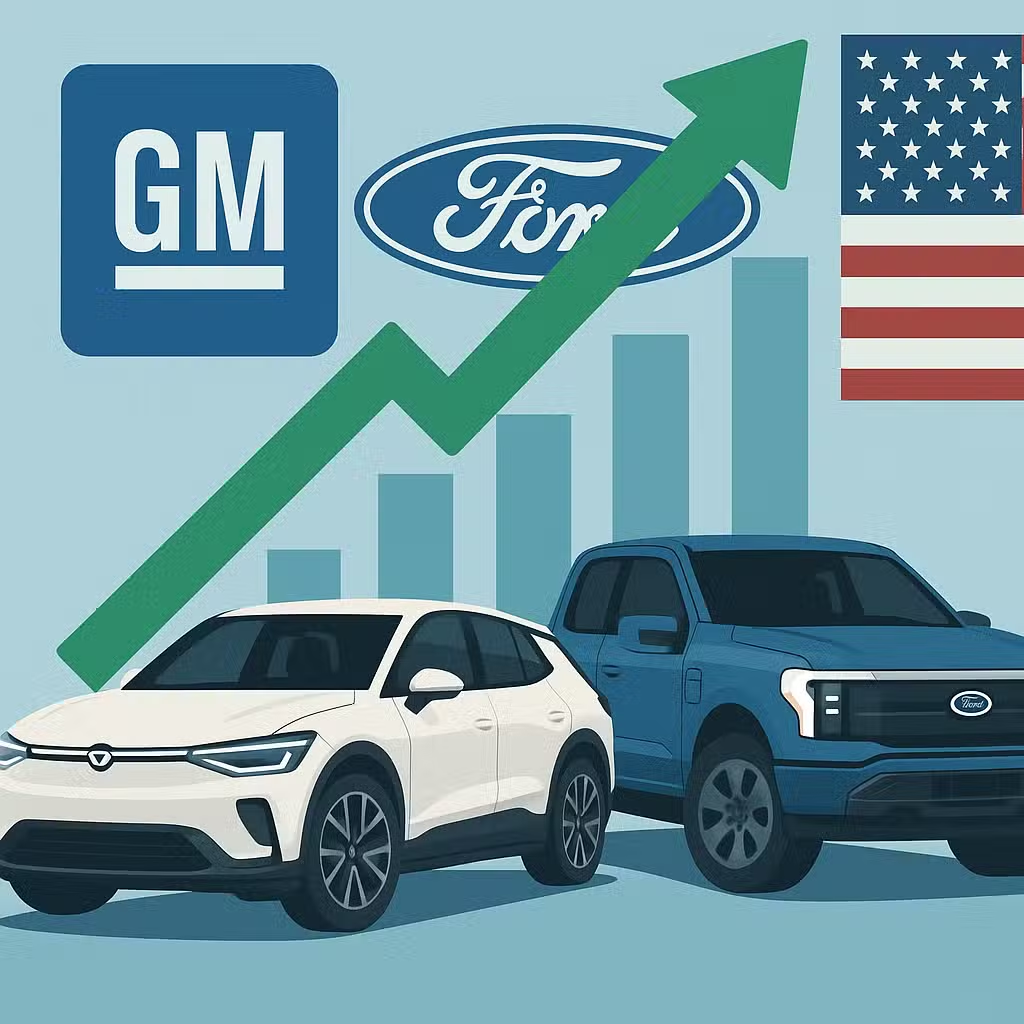Strong Q3 EV Sales Drive 8% U.S. Growth for GM and Ford, Signaling Sector Momentum
Think of the car market like a big game of musical chairs—when the music (in this case, federal incentives) is about to stop, everyone rushes to grab a seat. That’s what just happened with electric vehicles (EVs) in America, and it could mean big things for investors.
What’s Happening with EV Sales?
Major car companies had a great third quarter, thanks in large part to a surge in electric vehicle sales. Many buyers hurried to dealerships to take advantage of a $7,500 federal tax credit for EVs before it expired.
- Ford said their EV sales jumped 30% compared to last year.
- General Motors (GM) more than doubled its EV sales and grew total sales by about 8%.
- Hyundai also doubled its EV sales, with overall sales up 13%.
GM is now holding its biggest share of the U.S. car market since 2015, at 17.2%. According to Cox Automotive, U.S. EV sales are expected to hit a record 410,000 vehicles for the quarter, taking a 10% slice of the market—up 21% from last year.
Why Does This Matter for Investors?
When car companies sell more EVs, their stocks and the overall auto sector can get a boost. More sales mean more revenue, and breaking sales records often leads to investor excitement. But there’s also risk if the demand slows down now that the federal incentive is gone.
- Strong EV sales can lift share prices for companies like Ford, GM, and Hyundai.
- Suppliers and battery makers may also benefit.
- If EV sales drop after the incentives end, companies could face slower growth or unsold inventory.
In fact, Ford’s CEO warned that the EV market share could drop from a record 10–12% to just 5% now that the tax credit has ended. This uncertainty can make auto stocks bumpy in the short term.
Bulls: Why Optimists See Opportunity
- EVs are selling faster than ever, with each quarter breaking previous records.
- Government policies and growing consumer interest could bring back incentives or other support.
- Big automakers are still investing heavily in EV technology, betting on long-term growth.
- According to the International Energy Agency, global EV sales could reach 14 million in 2023, showing demand is strong worldwide.
Bears: Why Cautious Investors See Risk
- Sales may fall sharply now that the $7,500 tax break is gone, especially for price-sensitive buyers.
- Automakers could be left with too many cars if demand drops suddenly.
- The EV market is competitive, and not every company will win—some may lose market share or cut prices.
- Charging infrastructure and battery supply issues could slow down future growth.
Historical Context: Lessons from the Past
When government incentives have ended for other products, like solar panels, sales often dipped but then rebounded as costs fell and technology improved. Investors who stayed patient during the slowdowns sometimes saw solid long-term gains once the market picked up again.
Investor Takeaway
- Watch for short-term ups and downs: EV stocks might be choppy as the market adjusts to the end of incentives.
- Consider the whole supply chain: Battery makers, chip suppliers, and charging companies can benefit—not just carmakers.
- Look for strong balance sheets: Companies with healthy finances are better positioned to survive a sales dip.
- Don’t ignore global trends: U.S. incentives may change, but worldwide EV demand is still growing.
- Stay diversified: Don’t put all your eggs in one basket. Spread your investments across sectors and regions.
For the full original report, see CNBC







